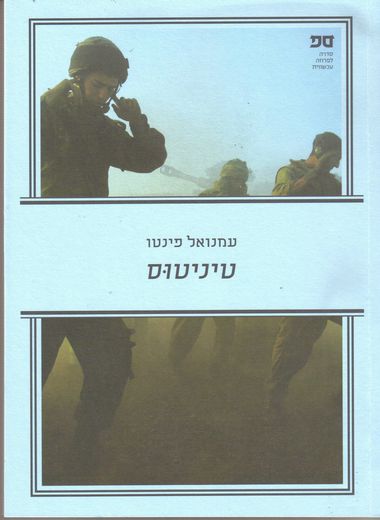
Tinnitus
Pini, who fought in the First Lebanon War as a young soldier and witnessed the massacre at Sabra and Shatila, lives in present-day Paris, confused and lost. His memory of the war refuses to subside and remains with him as an indistinct sensation, like tinnitus. But instead of a ringing sound or whistle, he has been hearing the cries of the boy he killed for the past twenty years. Interspersed with these memories are the letters his mother wrote him during the war and the experiences of old, sick French playwright Jean Genet, who was in Beirut in 1982. Pinto’s Genet is drawn to the Palestinians for political and humanitarian reasons, and through his writerly need for a subject. He calls the Palestinians `Revolutionary Poets` and draws his inspiration from them. His homosexuality (which he and Pini have in common) also plays a part in the appeal of the conflict. The relationship between Genet and Pini, established through a few dramatic encounters, culminates in Pini`s madness after the massacre, a crazed state filled with death, desire, fantasy and smoke. The novel fuses Pini`s personal, nightmarish experience with the moral and political implications of the event in an extraordinary and challenging literary performance.

-
“ Profound and fascinating.”
-
“ Pinto [shows] a palpable talent that draws on great creative wealth... His language is beautiful and tainted, aware of itself and precise.”
-
“ Wonderful and terrible. I cannot think of another book that so communicates the memory of war as something that never ends in the protagonist’s life. The writing is hypnotic.”
